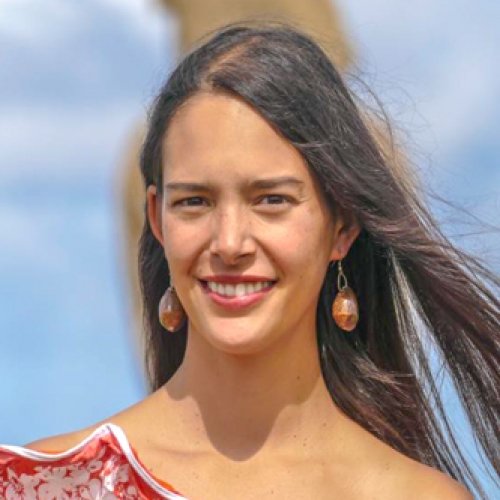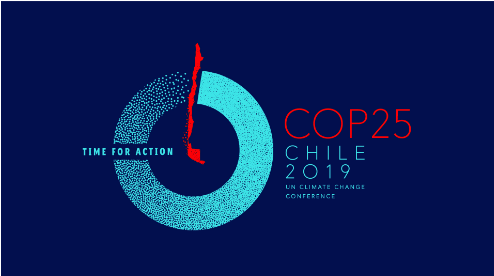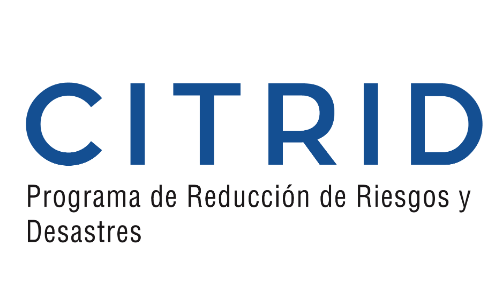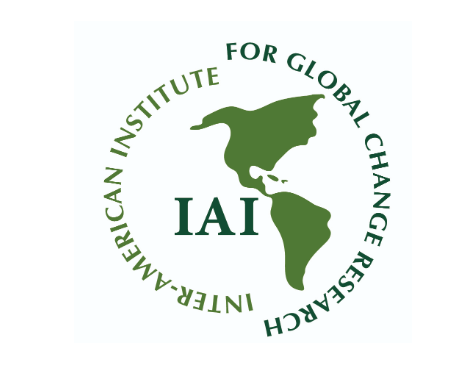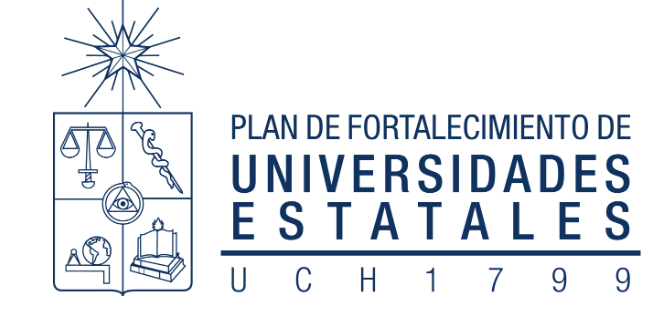16th - 18th October 2019
Transformations 2019 focused on providing a platform for reciprocal learning between less and more developed contexts, and between researchers and practitioners, in order to enhance both practice and theory to support transformative changes for addressing climate change and other contemporary societal and environmental challenges.
The Transformations 2019 Conference, the fourth in a biennial series, was proudly organized for the first time in a "Southern Country," reflecting a commitment to learning from diverse contexts and social actors. The conference emphasized collaboration beyond the scientific community, involving government organizations, the private sector, and civil society in active participation and interaction through innovative formats. Special "non-academic sessions," open to the general public, were led by non-academic organizations that shared their realities and challenges, allowing scientists to apply their knowledge in service to society directly. The event also embraced art, music, and children's visions of the future, serving as sources of inspiration for transformation. These elements, among others, characterized the dynamic nature of the conference, which welcomed new ways of thinking and relating in a novel context. Transformation was embraced as a concept belonging to and involving everyone.
Keynote Speakers
Sonia Diaz - Social leader, community of La Gloria
has dedicated over 25 years to leading her community in La Gloria through recovery and resilience efforts after a devastating fire.
Susanne Moser - Research Faculty at Antioch University
specializes in climate change adaptation and resilience, contributing to key IPCC reports and advising on climate policy across various communities.
Mahani Teave - Classical Pianist from Rapa Nui (Easter Island)
Co-founder of the NGO Toki
founded the NGO Toki with other Rapa Nui youths, creating a sustainable music and arts school on Easter Island to empower local children and improve society.
Patricia Romero-Lankao - National Renewable Energy Laboratory; Mansueto Institute for Urban Innovation
studies urban dynamics, city-level resource systems, and governance in environmental risk management, and contributed to the IPCC's Fourth Assessment Report.
Program
Thank you to all who participated!
Themes
-
Description tTransformations in science have evolved considerably in theory and academic approaches. Before we continue developing the transformation paradigm, what is required is a critical look at how this evolution in science has occurred, allowing deep reflection. We need to create spaces to enquire in a flexible and creative manner, about the theoretical bases of transformation, what we understand and how we frame transformation, how the concept has evolved and the diversity in which it has been defined. Moreover, what are the convergences and divergences of the conceptualization of transformation with other related concepts such as adaptation, resilience and how they can complement each other. What is also needed is to look into how transformational methods have progressed in science and what are the innovative methods developed to take into account the particularities of the transformation paradigm.ext goes here
-
Stories of transformation in the ‘real world’ offer an opportunity for learning from the diversity and richness captured in different types of knowledge, beyond science. Transformational processes have been integral to human history and ancestral and traditional stories keep the knowledge that has been passed on through generations, for instance, in indigenous groups that have survived colonization, such as the Incas, Mapuches, Mayas, Aymaras, and the Toltecas in the Latin America Region. Local knowledge is contextual, and is associated with unique geographical, social and political contexts. The aim of gathering this knowledge is to learn from a spectrum of transformational actions, practices and processes that can be adapted to different realities. What is important to consider is that communities at the local level are at the ‘front line’ in terms of experiencing the impacts of climate change and other transformative pressures, and consequently they are often ‘front line’ responders. There is also a great source of knowledge that emerges from formal institutions that have included the transformation approach, and how these institutions have changed over time. Formal institutions include policies, norms, strategies, plans and agreements implemented at local, regional, national and international levels. Studying these instruments is as important as studying the processes in which these institutions are designed and implemented. Therefore, it is necessary to consider that policy processes do not finish when new legislation is enacted, or when new guidelines are delivered through new plans or programs imposed from the top-down. Rather, the process continues in the implementation phase, where practitioners respond to the new directives. For example, in climate change policy the approaches to adaptation, resilience and mitigation have been included explicitly, which is not the case for transformation.
-
The approaches detailed above (Themes 1 and 2), which can be summarised as knowledge in science and practice, which are clearly necessary to achieve transformation. However, we believe that for complex problems the trans-disciplinary paradigm, understood as a combination of these types of knowledge, could give us a more comprehensive picture of reality and of the transformational responses and processes required. Learning from each other emerges as pivotal, but how we can navigate the way to get there, deserves more attention. Thus, we need to foster a dialogue between science-policy and science-society, including different kinds of knowledge coming from different scientific disciplines, as well as the ones that emerge from society, including ancestral, traditional and local knowledge. The central question here is which are the approaches, methodologies and methods that allow the creation of channels, spaces, platforms and opportunities for the flow of knowledge, learning, reframing and co-production for transformative processes. Some of the approaches that underpin learning from each other are action research and transdisciplinary inquiry.
-
Even if great advances have been achieved in the theory and practice of transformation, lesser attention has been paid to the ‘agents’ of transformation. Transformation is not passive, rather, transformation agents or ‘transformers’ are actively involved in transformation processes. Therefore, who is involved, why and how they are involved, and what are the characteristics of these agents are crucial aspects to be studied. The recognition of the who is relevant, for example to facilitate and encourage participation and the connection with others, as working in isolation most of the time constitutes a barrier for transformation. This goes beyond thinking only about individuals, it could also be about communities, associations, groups and so on. The why is also important, in terms of knowing the motivations, priorities, values and goals that underpin their interest in transformation. The how, meaning the ways transformers understand, design, implement and evaluate transformation, including for example partnerships, networks, formal institutions, and how they imagine the future with transformation as part of the responses to climate change and other societal challenges. Finally, the what, what are the characteristics of successful and unsuccessful transformers? How can they best be supported? How can scientific knowledge contribute?
-
Nowadays, transformation is not the same as it was only a decade ago, not only because of global changes, but also because of the particular contexts faced by different societies, considering globalization, and increasing and dynamic complexity and uncertainty. Societies with similar or different development models share growing complexity and uncertainty in elements such as an aging population, the disarticulation of the social fabric, an increased distrust in institutions, conflicts of power, the reduction of subjective well-being, the centralization of participatory processes, the imbalance of territorial practices with the natural environment, the instability of livelihoods, the fragility of state and community protection relations, the excess of information and the de-qualification of education, among others. All these result in an unequal distribution of opportunities and capacities for transformation, and their impacts between different social groups, can result in emergent differences, perceptions and experiences of injustice and fragility in a culture of growing uncertainty and vulnerability. The challenges are then to analyse the particular social conditions that could hinder or enhance positive processes of transformation. At the same time, it is necessary to analyse how the transformation process helps, or not, to reduce the vulnerability of certain social groups and support changes in the structure and social functions that improve common welfare.
-
In recent decades, disaster risks have increased due to the impacts of climate change and other global changes such as urbanization, which in most cases has resulted in the construction of ‘risk traps’ that often coincide with areas of socioeconomic fragility, exacerbating the impacts of dangerous phenomena, especially in less developed countries. However, the occurrence of disasters can also be seen as an opportunity to intervene in the root causes and conditions of disaster risk, reducing negative impacts. Past disaster events have triggered important transformations such as improvements in building regulations, the creation of disaster risk institutions, the design of public policies, changes in land-use planning instruments and others, which have made it possible to improve the resilience of countries and communities, as well as a range of social and other benefits. This transformation process can be constituted by individual or collective strategies that respond to the need to reduce socio-natural risks related to climate change, and in some cases, to face complex multi-hazard scenarios. The various responses are conditioned by the cultural and socioeconomic systems of both less and more developed countries. These strategies also include larger-scale transformation processes associated with national efforts that can have significant long-term effects. Therefore, it is relevant to explore the efforts made at different scales of analysis to learn and adapt successful experiences into other territories that need to start or deepen their transformation processes to prepare for, or respond to disaster risk.
Sessions
Non-academic Sessions
We have created a special space for non-academic sessions, in which different organizations from the private sector, from government, civil society and organized civil society (NGOs), can participate by presenting transformational actions or processes that they have carried out, or discuss how they see Transformation as an alternative to solve problems in their field of work, so that they can gather ideas, knowledge and experiences from the scientists participating in the Conference, as well as other participants.
-
🎬 Exposición y Rodaje de Spot Publicitario Transmedia Storytelling frente al cambio climático / Exhibition and Filming of Transmedia Storytelling Advertising Spot Against Climate Change. Transformasmedia, Eduardo Saavedra B., Karina Quiñones, Anne Mette
🏢 Transformando los negocios: Empresas a la vanguardia / Transforming business: Companies at the Forefront. ACCIÓN Empresas, Carmen Lacoma, Lucía Martínez, Rosa Soto
🌾 Enfoque transformacional para abordar la sequía en la agricultura chilena: uso del suelo, praderas y manejo del ganado / Transformational Approach to Address Drought in Chilean Agriculture: Land use, Grassland and Livestock Management. Ministry of Agriculture, Antonio Yaksic Soulé, Mark Howden, Isidora Molina, José Manuel Gortázar, Carlos Ovalle
🚺🌍 Zonas de Sacrificio, Género y Transformación Social / Sacrificed Zones, Gender and Social Transformation. Terram, Hernán Ramírez Rueda, Fernando Martínez, Javiera Valencia
🌱 Jóvenes protagonistas de la transformación ambiental / Young protagonists for the environmental transformation. Tremendas, Julieta Martínez, Matilde Gaete
⚡️ Transición Energética y descarbonización eléctrica en Chile / Energy Transition and Electrical Decarbonization in Chile. Fundación Chile Sustentable, Claudia Fuentes, Pamela Poo
⛏️ Chile, país minero: la necesidad de avanzar hacia industrias no extractivas / Chile, Mining Country: The Need to Move towards Non-extractive Industries. Fundación Chile Sustentable. Sara Larraín, Pamela Poo
🏘️ Barrio a barrio transformando la ciudad / Neighbourhood to Neighbourhood Transforming the City. Quiero mi barrio. Heidi Kremmer
🏫 Escuela Casa Azul: Comunidad para la participación y transformación de Niños y Niñas / Casa Azul School: Community for the Participation and Transformation of Children. Escuela Casa Azul, Samuel Vásquez, Natalia Contreras, Eugenia Mellado, Carlos Mellado, Tábata Suzarte, Natalie Parra
🌐 Fortalecimiento local de comunidades ante múltiples escenarios de riesgos, ocasionados por el cambio climático / Local Strengthening of Communities, in the Multiple Risk Scenarios Caused by Climate Change. Municipalidad de Pudahuel
🌆 Red de Inclusividad Urbana. La Ciudad Para Todes. / Urban Inclusivity Network. The city for Everybody. Rebeca Silva Roquefort
🏞️ La migración internacional también es rural: ¿cómo pensar el desarrollo local inclusivo? / International Migration Is Also Rural: How to Think Inclusive Local Development? Fundación Superación de la Pobreza, Francisca Castro Tohá y Antonia Garcés Sotomayor
🌍 Niñez transformadora de la relación con el medioambiente/ Transformation and Childhood in Relation with the Environment. Escuela Tierra de Niños, Víctor González Arriaza
🌊 Transformando los Océanos: Rol de los vertebrados marinos en el cambio climático / Transforming the Oceans: The Role of Marine Vertebrates in Climate Change. Centro Ballena Azul, Rodrigo Hucke-Gaete, Mauricio, Francisco Morey
Innovative Research and Communication Clinics
At Transformations 2019, we offered innovative Research and Communication Clinics. Participants had the opportunity to join these clinics, where experienced researchers shared their knowledge with young researchers. One clinic focused on crafting scientifically and methodologically sound summaries in an innovative and attractive way. Another clinic, facilitated by the online newspaper El Mostrador, taught participants how to communicate science effectively in the media, enabling them to take an active role in disseminating scientific knowledge beyond university classrooms to benefit society.
TransAction Pre-Conference Workshops
-
🌾 SUSTAINABLE FOOD SYSTEM TRANSFORMATION: PARTICIPATORY EVALUATION AND LEVERAGE POINTS
🔬 TRANSFORMATION LABORATORIES AS SPACES FOR CO-DESIGNING SOCIO-ECOLOGICAL TRANSFORMATION: LEARNING FROM DIFFERENT CONTEXTS AND APPROACHES
🌍 IMAGINING THE TRANSFORMATIVE FUTURE OF CITIZEN OBSERVATORIES (CO) TO LEVERAGE THE POWER OF OPEN DATA, TECHNOLOGY AND CITIZEN SCIENCE
📚 TRANSFORMATIVE NARRATIVES: MEMES, STORIES AND THEIR ROLE IN TRANSFORMATIONS
🔨 TRANSFORMATIONS FOR FUTURE INSTITUTIONS – EXPERIMENTAL PROCESS TO SHAKE-UP THE CONTEXT
Art as Inspiration
Art and Literature, an Inspiration for Transformations
Transformations occur in relationships. These can be social, between humans and nature, between culture and technology, between development models and subjective dynamics, between formal and factual powers. What is transformed is the form of the relationship, the delicate adjustment between the systems. To promote transformations, it is necessary to understand the relationships that underpin the current state of things. Understanding means knowing its pillars, its assumptions, its mechanisms, its functioning, its causes and its effects, but it is also necessary to perceive its fissures, unveil its leaks, create its possibilities, empathize with its impossibilities, long for its states, suspect its permanence, desire its changes, feel its transcendence.
Knowing about transformation implies knowing relationships from different frameworks of understanding. And since relationships are not linear and univocal, but full of tensions and inexplicable, it is worth integrating the different ways of understanding reality that science and the arts have historically had. When the theories explain, the works apply; when concepts define, the arts inspire; when models predict, the arts trigger. Because art is one of the languages in which transformation is expressed and the complementary knowledge that allows us to know what it really is.
Conference Closing Event
The 14th Media Arts Biennial (BAM) in Santiago
The closing event of the Transformations 2019 Conference took place at the National Museum of Fine Arts during the 14th Media Arts Biennial (BAM) in Santiago, which featured artists from around the world exploring the concept of the "fourth world" — a new equilibrium between culture and nature. This biennial included the exhibition of 11 works by artists from Sweden, Chile, France, the USA, and the UK at five participating museums. These works, inspired by Gilles Clément’s "third landscape" concept, engaged attendees in discussions about transformation and adaptation in ecosystem creation through sculptures, installations, and video art. The closing ceremony deepened the experience with the works of Claudia González Godoy, encouraging a reflection on the vital balance between culture and landscape.
Additionally, the closing session titled "Transform-Art: Art as an Action of Transformation" featured three dialogues that merged academic, artistic, and spiritual perspectives to underscore the relationship between art and transformation. The speakers from diverse backgrounds fostered reflections on how art reshapes our relationships with others, history, and nature.
Conference 2019 Team:
LOCAL STRATEGIC COMMITTEE:
Paulina Aldunce Ide - Associate Professor in the Department of Environmental Sciences and Renewable Natural Resources. Associate Researcher of the Disaster Risk Reduction Program, CITRID, and the Center for Climate and Resilience Research (CR)2, at the University of Chile.
Carmen Paz Castro - Tenured Professor of the Department of Geography and Vice Dean of the Faculty of Architecture and Urbanism of the University of Chile and CITRID board member.
Andreé Henríquez Aravena - Chief of Staff of the Vice-Rectory for Research and Development at the University of Chile. Project Director of Internationalization of Research and Doctorates.
Sonia Pérez Tello - Director of Linking with the Disaster Risk Reduction Program of the University of Chile, CITRID. Assistant Professor of the Department of Psychology, Faculty of Social Sciences University of Chile.
Pablo Riveros - Head of the Transdisciplinary Networks Unit, Vice-Rectory of Research and Development, University of Chile.
Andrea Rudnick - Executive Director of the Center for Climate and Resilience Research (CR)2, University of Chile.
José Antonio Marengo - General Coordinator of Research and Development at the National Center for Monitoring and Alert of Natural Disasters (CEMADEN) of Brazil and Professor at the Postgraduate School of the National Institute of Space Research (INPE).
CONFERENCE SERIES CONTINUITY COMMITTEE:
Professor Ioan Fazey - Department of Environment & Geography, University of York, United Kingdom.
Professor Mark Howden - Director Climate Change Institute Australian National University, Australia.
Professor Karen O’Brien - Department of Sociology and Human Geography University of Oslo, Norway.
Professor Per Olsson - Innovation and Transformation in Social-Ecological Systems Stockholm Resilience Center, Sweden.
SCIENTIFIC COMMITTEE:
Susanne Moser - Susanne Moser Research & Consulting Antioch University New England Hadley, MA, USA
Injairu Kulundu - PhD Candidate at the Environmental Learning Research Centre, Rhodes University, South Africa
Stefan Gelcich - Associate Professor Faculty of Biological Sciences Pontifical Catholic University of Chile Santiago, Chile
ARTISTIC COMMITTEE:
Enrique Rivera
Sonia Pérez Tello
Paulina Aldunce Ide





